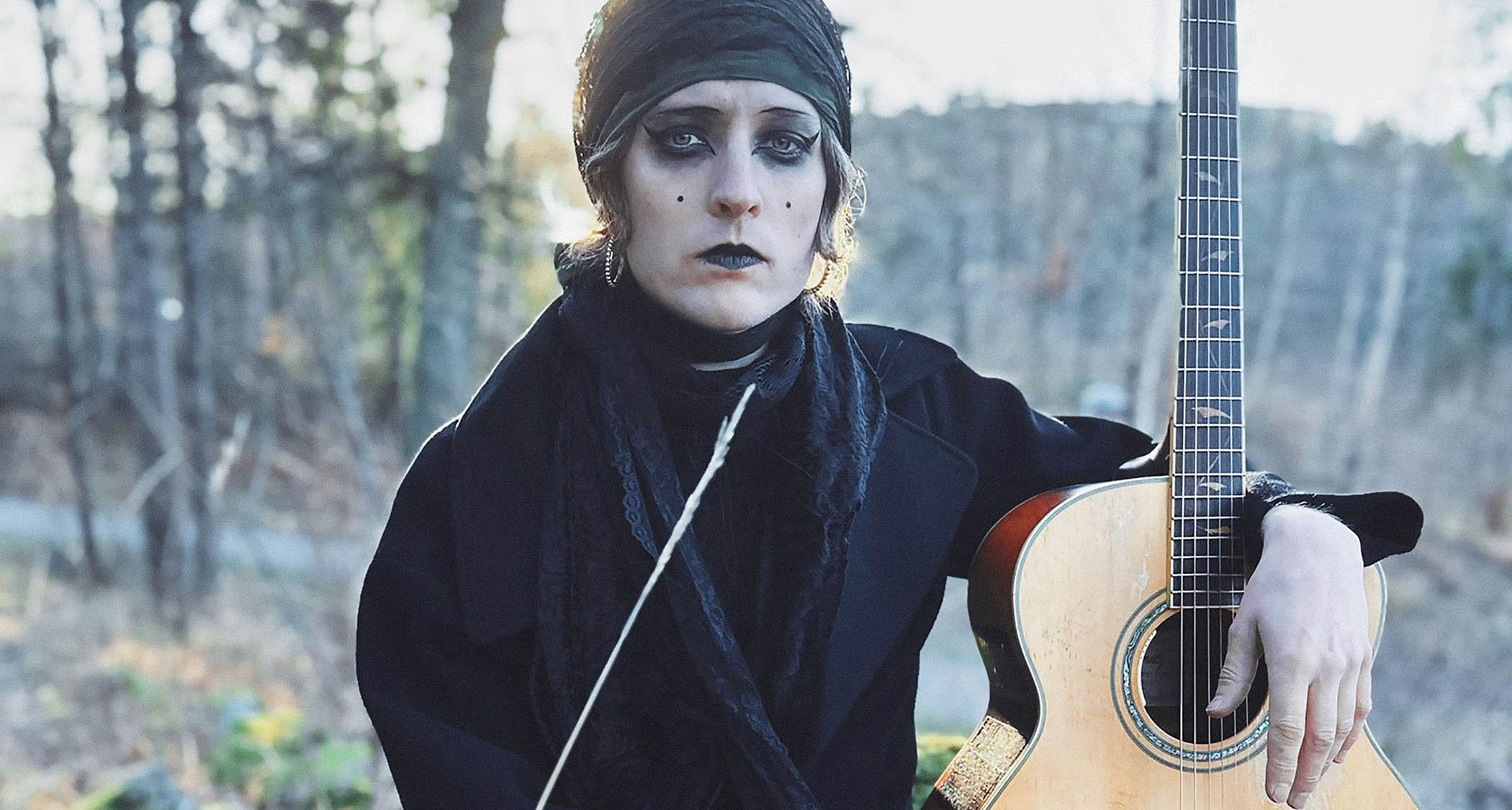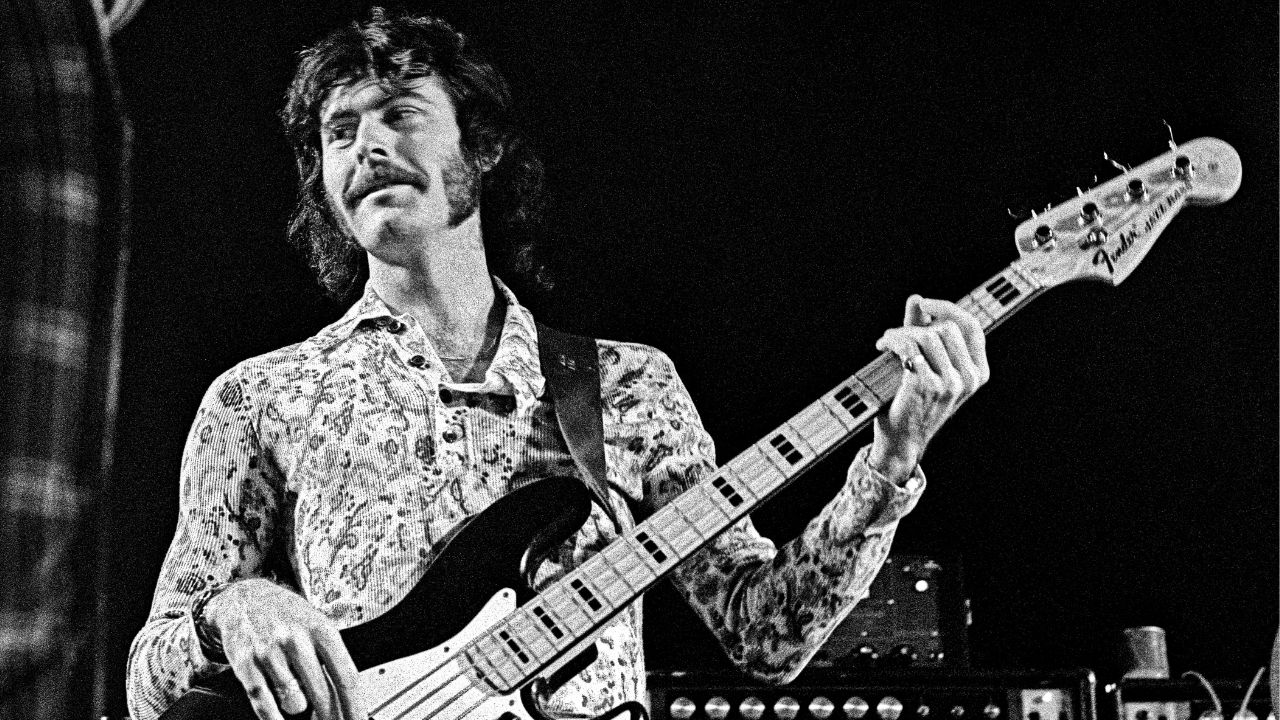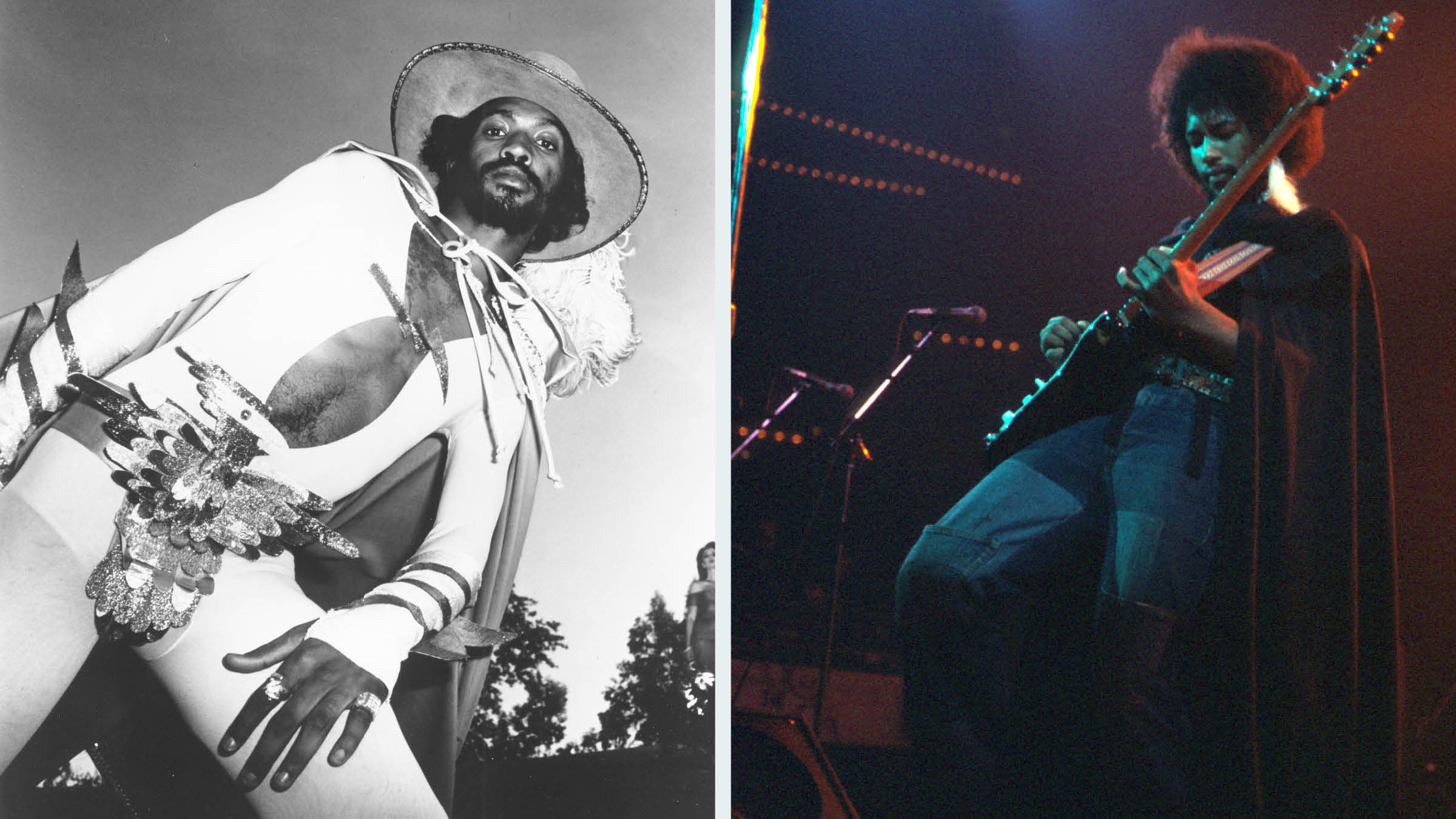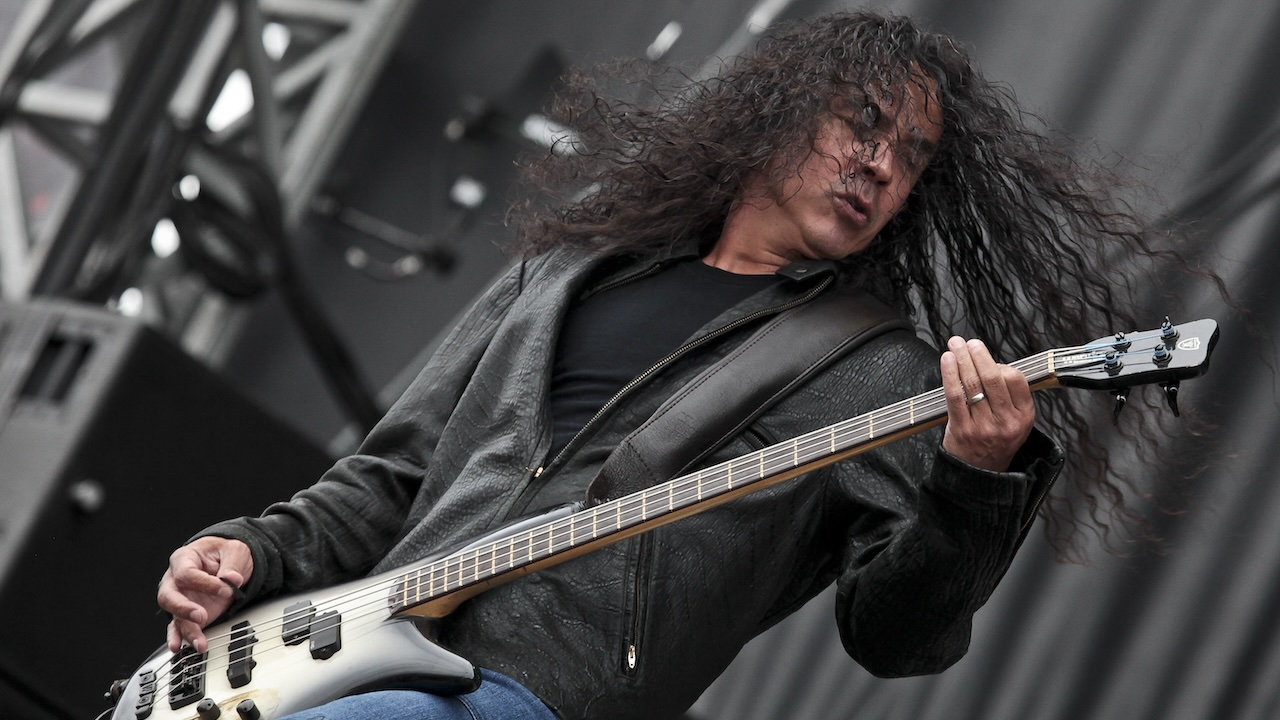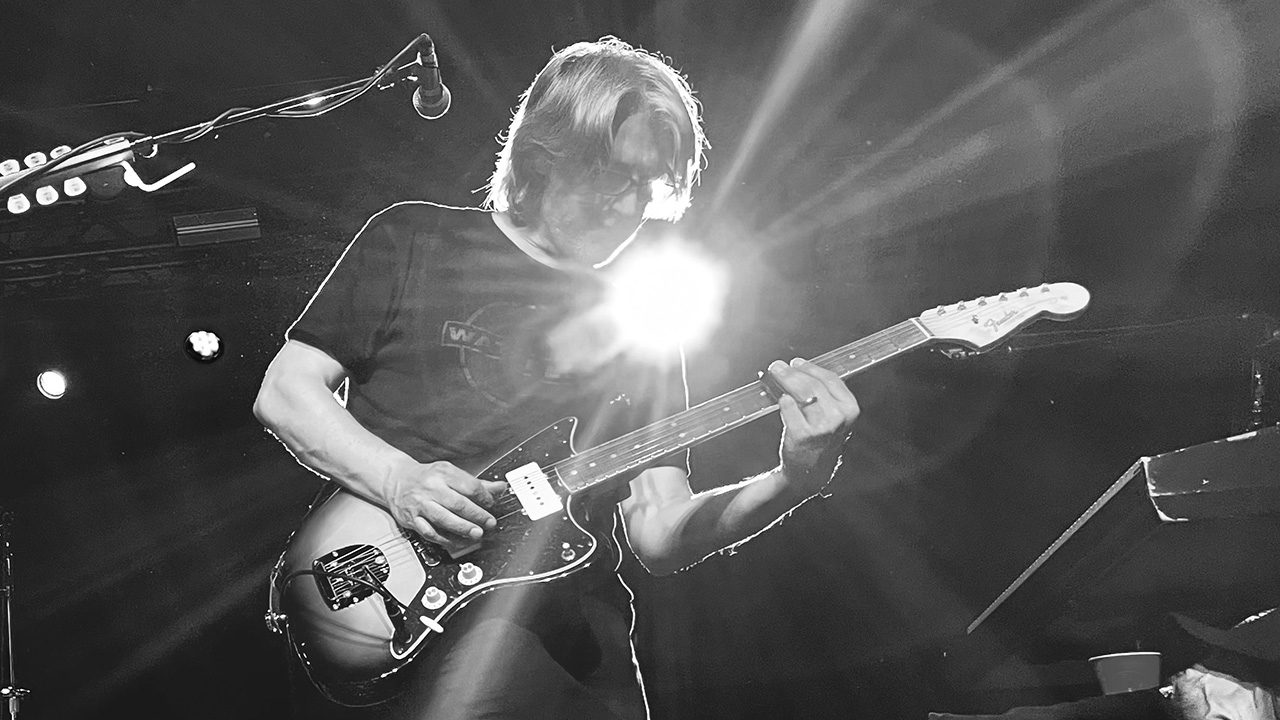“I gravitate more towards Victor Wooten than the straight-up shredding of Billy Sheehan, but I’ve ripped pages from both books”: Jacob Umansky unpacks the origins of his cutting-edge slap technique
How the Intervals and JIA bassist powered up his slap technique – with the help of Victor Wooten and Billy Sheehan

Based on mighty riffs from guitarist Aaron Marshall and the bass guitar manoeuvres of Jacob Umansky, Canadian progressive metal band Intervals remain among the hardest-hitting around, especially on their upcoming record, Memory Place. The album is of particular interest to bass players – because the low-end is all over it.
“This is the most excited I’ve ever been for a new Intervals release,” says Umansky. “The guys let me go bananas with the bass on this one, which is a little nerve-wrecking for the live shows, but we’re doing OK so far!”
A steady stream of touring looks set to keep Intervals increasingly busy over the next few months. Having to deal with the pressure of executing so many of the bands’ tracks, Umansky has focused much of his attention on dialling in his bass gear to get the right set of sounds.
“On the new record we used a lot of stereo doubling, which gives us a really controlled chorus effect. I believe we actually threw a wah effect on one of the heavier tunes. I love when we create a magical moment in the studio and we get to recreate it every night on stage. This is our first record in three years, so I’m pretty ecstatic about bringing the new music on the road.”
A solo artist with instrumental trio JIA, Umansky also has a growing discography of his own behind him as well as countless sessions; the final single from JIA’s debut EP, Elapse, is called Spring and starts with the monstrous tone of his Dingwall 6-string bass – and is the obvious place to start, in our case.
“That song started with a simple 7th chord progression. I genuinely wanted to write something that had a vibe and wasn’t too crazy, but by the time I’d finished programming the drums, the bassline had moved in a completely different direction. It’s genuinely one of the most complex bass parts I’ve ever written.
“The writing process is a bit different between JIA and Intervals. With JIA, I’m usually starting the tune from the ground up. Every song on the EP started with a rough guitar ostinato or synth idea that I tried to build from.”
Get The Pick Newsletter
All the latest guitar news, interviews, lessons, reviews, deals and more, direct to your inbox!
A keen user of Dingwall basses, Umansky has plenty of tips for us about building basslines – but first, he talks about his enduring bass guitar heroes, and the attitude required to do the job of holding down the low-end.
What’s the dynamic like in Intervals?
“Everything always starts with Aaron, which I knew going into the band. Having said that, it’s grown into much more of a band dynamic as our lineup has solidified. I think everything we’ve released in the past few years, especially the new album, reflects that.”
How would you describe the new music?
“The new material is darker than the past two albums. We also went a bit heavier with a few of the tracks on this record, which I’m really excited about. I think the fans will be stoked that we’re going back to that sound. It’s definitely evolved, but the core Intervals vibe is really there.”
What players, particularly in the genre of technical metal, were influential on you or do you admire?
“Dan Briggs of Between the Buried and Me. I like his approach to composition and the way his basslines weave in and out of the guitar riffs. Also, Evan Brewer. That was the first time I saw someone apply Victor Wooten’s melodic slap techniques to metal, which was extremely eye-opening.”
Do you like technique guys? Were you ever in awe of someone like Victor Wooten or Billy Sheehan?
“Of course. I still am! I definitely gravitate more toward what Victor is doing than the straight up bass shredding of Billy Sheehan, but I’ve definitely ripped pages out of both books. The percussive nature of Victor’s double thumb technique really captured my attention.
“The concept of treating the bass like a percussion instrument and almost treating the harmony as an afterthought was extremely eye-opening. That being said, the music I find myself playing most often is pretty shred heavy, so there can be quite a bit of crossover between both styles.”
Who is your all-time favorite bassist?
“Henrik Linder. I remember my teacher showed me a video of Dirty Loops when I was 14. Admittedly, a lot of it went over my head at the time, but I was just so enthralled by everything Henrik was doing on the instrument. The thing I lifted most from his technique was his rhythmic and melodic approach to slapping.”
What do you think about slap bass in metal?
“There was a huge slap bass renaissance in the ‘90s and early 2000s. I don’t want to speak for other bass players, but I think a lot of us took influence from guys like Flea, Ryan Martini, Fieldy, and Tim Commerford.”
“I also remember learning a few of Victor Wooten’s lines and wondering if I could play some of the quicker passages from my band using some of his slap techniques. I immediately fell in love with the timbre. It also made my life a lot easier from a technical stand point.”
Ever been into Level 42?
“I’m not the biggest Level 42 fanatic, but I love Mark King and everything he’s done for the bass. Especially implementing slap bass into pop music.”
Do you still listen to bass players like Flea?
“Of course. He’s the godfather of slap bass to a lot of guys who didn’t grow up on Louis Johnson and Larry Graham. As the years went by I gravitated towards the style of Marcus Miller and Victor, but I owe a lot to players like Flea.”
Are there any current bass players out there that you find inspiring?
“I’m a huge fan of Brandon Giffin’s bass playing with The Zenith Passage. In the context of progressive death metal, where the riffs can be extremely busy, he writes basslines that outline the chords rather then just doubling the guitars, which makes everything sound so much fuller. His contrapuntal basslines effortlessly weave in and out of the guitar parts.
“Steve Jenkins and Or Lubianiker are two of my favorite modern slap players. They both have the ability to come up with really melodic slap lines.”
“I think Hadrien Feraud’s ability to push boundaries while maintaining a deep sense of groove and musicality is also pretty masterful. I wouldn’t call myself a jazz guy, but I take a lot of inspiration from musicians like Hadrien.”
How do you approach writing your own bass parts?
“The writing process is a bit different between JIA and Intervals, but no matter how busy or complex the track is I aways make sure I’m doing my job as the bass player first. You can stand out and have an aggressive sound while still holding down the foundation.”
Is there a bassline you wish you’d written?
“Detroit by Marcus Miller or Them Changes by Thundercat. Marcus Miller has an amazing ability to create these extremely memorable basslines that also double as the melody. I also love the subtle variation that he adds after each repetition. That’s definitely something I try to incorporate in my writing.”
What would you play if you wanted to impress someone with your bass playing?
“Classical Thump by Victor Wooten or Power by Marcus. I think both of those tunes are in the same realm as Stairway to Heaven for the guitar, or the May I help you? riff in Wayne’s World. Anytime a bass player hears an excerpt from either of those tracks it’s immediately recognizable.”
What gear are you currently using?
“Live, I’m running a Fractal FM9 into a Darkglass M900 and two Darkglass 2x10 cabs. For this tour, I’ve been playing a new prototype of my Dingwall Z3 6-string and a modified Dingwall Combustion.”
If you could give one bit of advice to aspiring bassists when it comes to choosing the right bass gear, what would it be?
“Try it all. I used to beg my dad to drive me to the smaller music stores out on Long Island just to try some of the smaller, more boutique brands. Developing your own sound takes time, but keep an open mind and be patient.”
- Intervals’ new album, Memory Palace, is available to preorder from intrvls.com.

Nick Wells was the Editor of Bass Guitar magazine from 2009 to 2011, before making strides into the world of Artist Relations with Sheldon Dingwall and Dingwall Guitars. He's also the producer of bass-centric documentaries, Walking the Changes and Beneath the Bassline, as well as Production Manager and Artist Liaison for ScottsBassLessons. In his free time, you'll find him jumping around his bedroom to Kool & The Gang while hammering the life out of his P-Bass.
“Paul Simon called Stax and said, ‘Who are those Jamaican musicians?’ They told him, ‘Those are some white boys from Alabama!’” David Hood on being starstruck by Aretha Franklin, what Otis Redding taught him, and tales from golden age of Muscle Shoals
“A personal crowning moment for me was having Lemmy ask me to play on a Motörhead record!” Alice in Chains’ Mike Inez on why Cliff Burton ruled, Paul McCartney's influence – and what John Entwistle told him (that he already knew)
